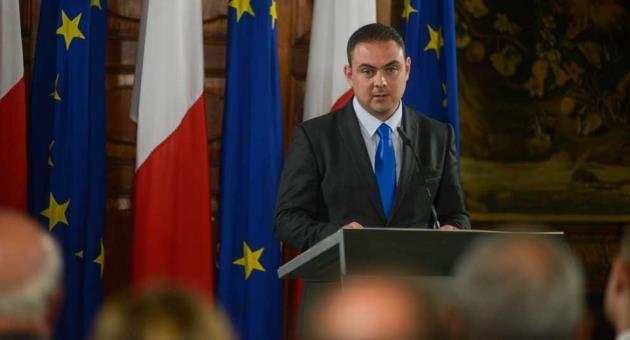The man dubbed ‘the Mosta animal killer’, even if there was never any proof that he killed animals, has requested to be released from Mount Carmel, where he is being held by court order. His request was however rejected by Justice Minister Owen Bonnici on the grounds that it was technically incomplete.
Nicholas Grech, a 38-year-old engineer from Mosta, was arraigned last year over the Mosta cat and dog ‘crucifixions,’ which started in October 2011 and lasted until 3 February 2014. Over a number of months, dead cats and dogs were found nailed to wooden crosses and hung onto religious sites. In some cases, he only ‘crucified’ animal limbs and on several occasions, hand written notes about “suffering” were affixed to the crosses.
The last major case happened in February 2014, when Mr Grech was caught on CCTV cameras hanging dead animals on the façade and back of the Mosta parish church. The footage, published exclusively by The Malta Independent, was viewed near 100,000 times and the case became one of the hottest topics of the time.
Later on, Mr Grech was charged with the illegal killing of animals, animal cruelty, violation of burial grounds, trespassing on religious grounds, forcing entry into the Mosta Parish church and l-Isperanza Chapel and vilifying the Catholic religion. He was however acquitted of all charges after court-appointed psychiatrists said he had no criminal intent and suffered from impaired judgement due to his mental condition and was declared insane. The court ordered that Mr Grech be held at Mount Carmel for as long as necessary.
This paper has learnt that Mr Grech wrote to the justice minister some months back, requesting to be released. The mental health review tribunal – then headed by the late Mr Justice Apap Bologna - had recommended a rejection.

Following changes to the system, Mr Grech has again, unsuccessfully asked to be released. In comments to this paper, Justice Minister Owen Bonnici explained that in order for patients being held in Mount Carmel on court order to be released, they have to write to the minister, but the letter also has to be accompanied by a report compiled by three psychiatrists recommending the patient’s discharge. The Minister would then consult with the Mental Health Commissioner, before coming to a decision.
Mr Grech failed to submit such a psychiatric report and, as such, his request could not be accepted, since the application did not meet the requirements established by law. “We wrote back to Mr Grech telling him to regularise his position because his application does not satisfy the requirements laid down by the law. Only a proper application can be reviewed.”
Asked what would happen if Mr Grech sends a correct request, including an appraisal by three psychiatrists, Dr Bonnici said he would then have to consult with the Mental Health Commissioner, Dr John Cachia, but the final decision rests with the minister alone.
Dr Bonnici would not say whether he would accept or refuse a proper request by Mr Grech but noted that there were cases in the past where he had decided not to accept a request despite the recommendations of the patient’s psychiatrists and the Mental Health Commissioner. In other cases he had sent the file back for reconsideration.
“I am very strict when it comes to these matters,” said Dr Bonnici, who said he feared that the wrong decision could have repercussions. “It is a difficult decision and I have to be very cautious in cases like this one.”